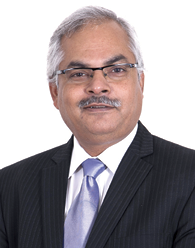Abhai Pandey and Omesh Puri on why greater enforcement machinery is vital to fight the fakes
With the advent of online marketplaces and the opening up of international trade on those platforms, counterfeiting in India has repositioned itself. While tremendous efforts have been made in the past two decades to strengthen India’s legal framework to address the issues of counterfeiting and piracy, mostly due to initiatives by the Indian judiciary and as part of India’s obligations under the Trade-Related Aspects of Intellectual Property Rights agreement, major gaps still exist in terms of enforcement. Most of the legal changes, particularly in the Trademarks Act, 1999, and in the Copyright Act, 1957, were focused on declaring counterfeiting and piracy as criminal offences and providing severe penalties, but we did not see corresponding initiatives to create the machinery to implement these legal provisions.

Initiatives by state governments and the metropolitan police in some major cities during early 2000 led to the seting up of specialized branches or wings to combat intellectual property (IP) offences. These include the IP cell in the Economic Offence Wing (EOW) of the Delhi Police, the Video Piracy Cell in Chennai and the allocation of IP cases to the Social Service Branch in Mumbai. However, in recent times we have also seen the dissolution of such specialized branches.
Recently, the IP cell in the EOW of the Delhi Police was dissolved presumably on the grounds that IP offences do not require specialized investigation. Similarly, in Mumbai, the Social Service Branch’s powers were reduced to handle only video and software piracy cases with cases of counterfeiting removed from their jurisdiction. In both these cities, which account for almost 40% of the counterfeits market, IP owners are being directed to file complaints with the regular and already heavily burdened police stations, which are responsible for general law and order and handle day-to-day crimes in their territory. For the officer in charge of a local police station, IP offences are of the lowest priority and presumably cracking such cases does not add any feathers to their cap. Hence there is no incentive or motivation for them to entertain complaints of IP offences.
You must be a
subscribersubscribersubscribersubscriber
to read this content, please
subscribesubscribesubscribesubscribe
today.
For group subscribers, please click here to access.
Interested in group subscription? Please contact us.
你需要登录去解锁本文内容。欢迎注册账号。如果想阅读月刊所有文章,欢迎成为我们的订阅会员成为我们的订阅会员。
Abhai Pandey is a partner and Omesh Puri is an associate partner at LexOrbis. Contact: abhai@lexorbis.com


























